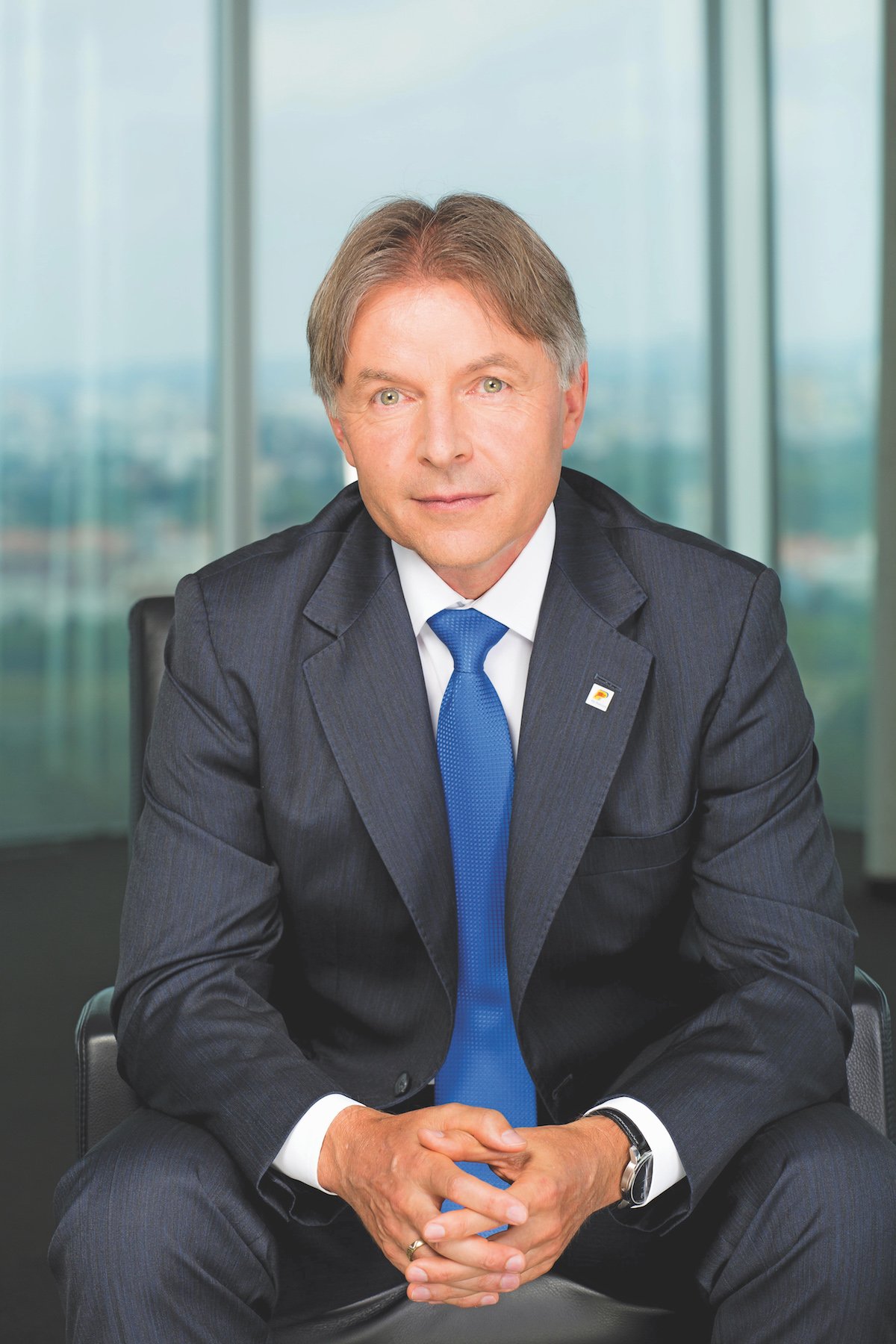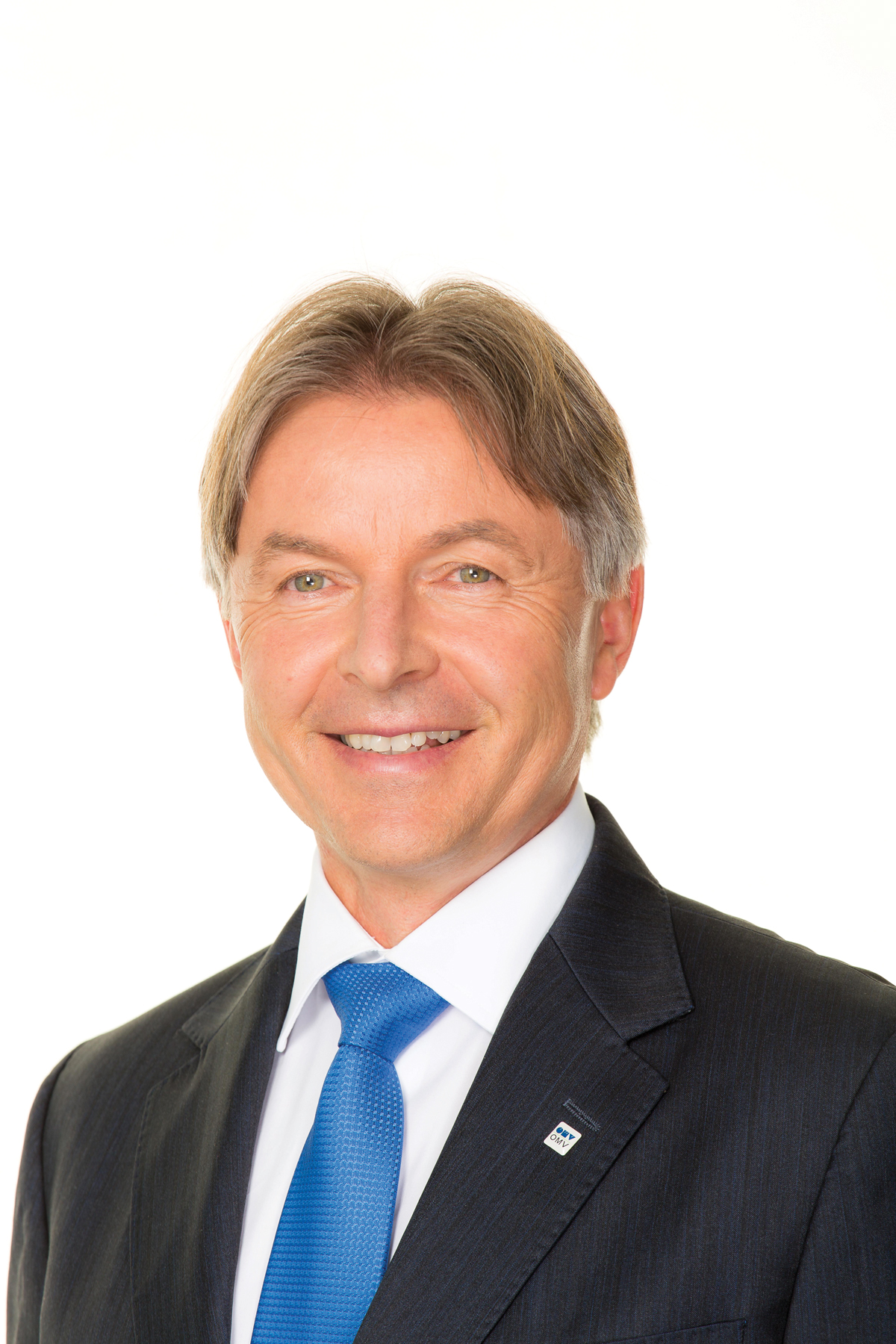Some quick mental arithmetic reveals that Johann Pleininger has been with OMV since he was 15 years old. Following the road less travelled to executive management, he joined the Austrian oil and gas conglomerate as a technical apprentice in 1977. A degree in mechanical and economic engineering followed. Today, as the company’s Executive Board Member for Upstream, he boasts an understanding of the sector that only hands-on experience can provide.
“I started in the oil field, doing most of the Upstream jobs by myself, including as operator, foreman, and working on the drilling rigs,” says Johann. Initially a project engineer, he segued into the commercial side of the business at OMV’s Vienna headquarters and, following OMV’s acquisition of a 51-per-cent stake in the Romanian oil and gas company Petrom (now known as OMV Petrom), he was appointed to its executive board in 2007.
A significant restructure
The tough restructuring program that Johann undertook during his 6-year tenure at OMV Petrom’s headquarters in Bucharest paid dividends. Aided by rising oil prices, “OMV Petrom is the cash machine in our portfolio, and the significant restructuring work is a part of my track record that I am very proud of,” he says. Recalled to Vienna in 2013 to take over as Senior Vice-President of core Upstream regions, the CEE (Austria and Romania) and Black Sea, he was appointed in 2015 to the position he holds today.

It is clear that Johann isn’t afraid of making difficult decisions, having already extensively revamped the head office structure since taking on his new role. In a bid to increase efficiency and cut costs, 40% of management in head office was removed. Yet this is simply one play in a much grander strategy to create and establish an effective Upstream organisation.
“In the past, we were very much volume driven,” he explains. “We communicated targets in terms of volumes to the outside world, which meant we then had to deliver those volumes. Once you are volume driven, you have to try to achieve it at any cost.”
Value, not volume
Going forward, Johann has determined that value, not volume, will be the principal unit of measurement for Upstream, saying, “We are now focusing on the most profitable barrels.”
The implications will be felt across the division’s entire operational field. “Instead of having fully fledged branch offices everywhere, no matter how many barrels we are producing in the country, we have decided to introduce a hub concept where we focus on our key zones: the CEE, the North Sea and the Middle East and Africa.”
Future growth will come from what Johann defines as ‘low cost areas’. 3 countries in particular have already been identified. The first is Iran, where the company has signed a study agreement in the south of the country, in an area he describes as “half the size of Austria”. The UAE is another, where he plans to draw upon the relationship with OMV’s main shareholder, IPIC, the Abu Dhabi-based petroleum investment company. Russia rounds out the list. “We are in negotiations with Gazprom regarding taking over part of Achimov 4 and 5,” he says.
Conceding that “reserves replenishment is not at the level where it should be right now”, he plans to place more emphasis on increasing the replacement ratio to beyond 100% via acquisitions rather than E&A (exploration and appraisal) activities. “We have reduced E&A spending from €700 million in 2014 to around €400 million in 2016, and this year we are targeting €300 million,” he explains.
“My clear target is developing people, supporting them, and creating
high-performing teams.” – Johann Pleininger
Describing OMV as both a cash- and performance-driven organisation, Johann’s short-term focus is on cash generation via the implementation of a very rigid spending culture. In addition to the figures above, Johann reveals Upstream was on track to achieve significant savings in OPEX and CAPEX costs in 2016 at the time of writing: reporting a figure of €1.3 billion, down from €2.7 billion in 2014 for the latter.
Creating high-performance teams
Such ambitious targets are achieved by establishing clear roles and responsibilities with his teams. “We have monthly performance meetings where we debate not only whether or not we are on track, but we also discuss in detail the measures we agreed on previously. Have they already been implemented? What is still missing?” he says.
These regular, in-depth discussions with his management team, who then follow up with their direct reporting line, are an essential part of his performance management strategy. It’s clear that people development is one of the principal characteristics of Johann’s leadership philosophy. “Right from the beginning, when I start a new job, I look at the team. My clear target is developing people, supporting them and creating high-performing teams,” he elaborates.
This highly capable workforce, with extensive international experience, is what Johann believes gives OMV the competitive edge. “We are very experienced in operating in mature fields,” he says, an advantage as Upstream courts partners in both new and established territories. In line with the current internal cost-cutting drive, he adds that Upstream is “renegotiating almost any contract we have in place with our contractors right now in order to get the cost down.”
Local & global suppliers
Quarterly meetings with a handful of his most important global contractors enable him to discuss “delivery, quality of the services, agility, and whether they are up to the standard we are requesting for our operations,” he says.
There is a careful balance in place between Upstream’s supplier relationships on both a national and international level. Contracts with suppliers of expensive or bulk materials, such as tubings and casings, offer the company a purchase power to negotiate a better price per unit on a global scale. Yet Johann also emphasises the importance of supporting local businesses in each country Upstream has operations in.
Both, he says, have their benefits. “On one hand, we fully utilise our purchase power worldwide, and on the other hand we use local contractors in order to get the permit and everything else that’s needed to do our jobs in a specific country,” Johann explains.
Using local contractors offers an important avenue to gain government support. “Whenever you need a permit for building a pipeline or drilling a well, you need local support. If you just bring external contractors to a country, you won’t be successful there.”
Johann admits “working for OMV for 40 years, for all my career, and then getting the chance to take the leadership position in Upstream was a big challenge.” With his strategy and priorities clearly defined, his appointment has proved crucial to powering OMV’s Upstream success.



